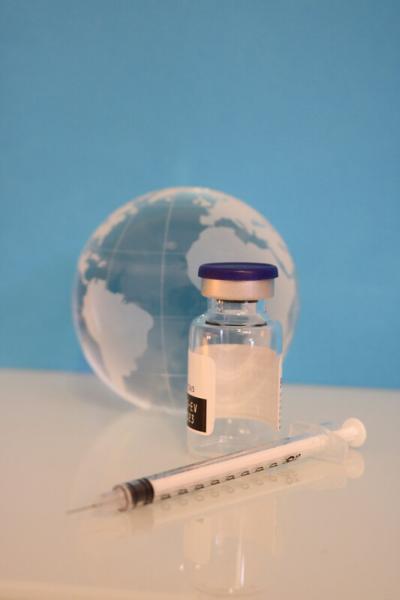Today marks the 25th anniversary of the first HIV Vaccine Awareness Day. Although tremendous progress has been made over the past several decades in HIV treatment and prevention, the development of a safe, effective, and durably protective vaccine to prevent HIV infection has, unfortunately, remained elusive. On this commemorative day, NIAID acknowledges the disappointments of the past while optimistically looking ahead to what’s next in HIV vaccine development.
Last year a large-scale HIV vaccine study called Imbokodo (HVTN 705/HPX2008) conducted in women ages 18 to 35 year in sub-Saharan Africa ended earlier than planned because the experimental prime-boost vaccine regimen failed to protect against HIV acquisition. The vaccine candidate was based on “mosaic” immunogens—vaccine components designed to induce immune responses against a wide variety of global HIV strains. The experimental vaccine used a strain of common cold virus (adenovirus type 26) to deliver four mosaic antigens to spur an immune response. Although the vaccine regimen failed to prevent HIV infection, researchers continue to analyze data from the study to learn more about factors that may increase protection against HIV acquisition, called immune correlates of protection.
A similar experimental vaccine regimen continues to be tested in the Phase 3 Mosaico study (HVTN 706/HPX3002) among nearly 4,000 men who have sex with men and transgender people in North and South America and Europe. Like the Imbokodo study, the Mosaico trial also uses an Ad26 priming vaccine but a different booster vaccine. The booster vaccine contains a mix of surface proteins from a variety of HIV types predominant in different parts of the world, rather than just one type. The Mosaico study is expected to conclude in 2024.
The experimental vaccine regimens tested in Imbokodo and Mosaico rely on T-cells, which kill virus-infected cells, and non-neutralizing antibodies, which do not directly attack HIV but direct other immune system components to destroy the virus. Alternatively, vaccines designed to stimulate broadly neutralizing antibodies (bNAbs) to HIV are another key pursuit for vaccine researchers. As proof-of-concept, several trials have studied the use of bNAbs delivered as drugs to prevent infection. In 2021, the investigational bNAb VRC01—discovered and manufactured by NIAID’s Vaccine Research Center—was delivered intravenously once every eight weeks safely and effectively prevented acquisition of certain HIV strains when tested in two multinational clinical trials. Additionally, a NIAID-sponsored study in Botswana of children perinatally infected with HIV tested two bNAbs, VRC01LS and 10-1074, in combination with antiretroviral therapy and then—if the children continued to maintain undetectable HIV—without ART. Ten of the 25 children maintained an undetectable viral load for nearly 6 months, suggesting that the antibodies could play a role in ART-sparing strategies.
Structure-based vaccine design has played a key role in the development of several of the COVID-19 vaccines. Now researchers are building on the success of the COVID-19 vaccines to explore a variety of new approaches to HIV vaccines. In March, NIAID launched an early-stage study evaluating three experimental HIV vaccines based on a messenger RNA (mRNA) platform—a technology used in several approved COVID-19 vaccines. Another early-stage study expected to begin this year will build upon earlier encouraging research of a novel vaccine concept called germline-targeting designed to spur the body to make its own bNAbs. Researchers also are evaluating prototype vaccines with sequences of HIV genes inserted into cytomegalovirus (CMV) as a carrier, or vector, to elicit a cell-based immune response. The approach has shown promise when tested in animals and is currently undergoing first-in-human clinical testing.
As the global battle against COVID-19 continues, the instrumental role that structure-based vaccine design played in the development of several approved COVID-19 vaccines is noteworthy. Further, NIAID’s HIV research infrastructure, expertise, and experience engaging with affected communities were key to conducting clinical studies of experimental SARS-CoV-2 vaccines and treatments. Although HIV and SARS-CoV-2 are extremely different viruses, the COVID-19 pandemic has demonstrated that the global scientific community can effectively collaborate across sectors to find and develop safe and effective vaccines during a public health crisis. Today, NIAID reaffirms its commitment to developing a safe and effective HIV vaccine and thanks the many clinical trial participants, researchers, health care professionals, advocates and others in the global community who continue to dedicate their time and energy toward that goal.


